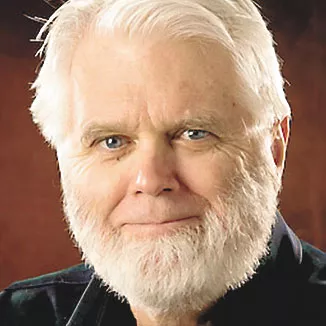It was bound to happen sooner or later — someone would tweak that favorite old paranoid GOP buzz-term "Who lost China?" and apply it to the here and now. Today it's Ukraine that's about to be "lost," or so says Senator Bob Corker (R-Tenn.), the ranking Republican on the Senate Foreign Relations Committee. Just as Truman was blamed for losing China, it's Obama who is losing us Ukraine.
FOX News, of course, weighed in weeks ago. Charles Krauthammer, who masquerades as a disinterested intellectual, refers to Obama's response to Russia's actions as "clueless ad hocism." He also pines for the second coming of the rough, tough Truman Doctrine, which boiled down to supporting both Greece and Turkey with enough military and economic aid to prevent either country from being dragged into the Communist "sphere of influence."
Even the usually brilliant Leon Wieseltier has weighed in against the president, quoting the New York Times' Peter Baker, who reports that Obama "seems intent on not letting Russia dominate his presidency." Wieseltier complains that this is typical of Obama: seeing the world as it ought to be rather than how it actually is.
If anything, Obama sees the world changing much more slowly than those who urge a bellicose foreign policy from the comfort of their TV pundit chairs.
Not surprisingly, few of Obama's critics have much to say about Ukraine as a country, except to leave us with an impression that what we have here is a beleaguered nation of people who just want "truth, justice and the American way." You know, people who want to be like us.
The New Republic's always thoughtful Anne Applebaum argues that we really should begin with a closer look at Ukraine, which, she observes, is a nation-state without a "nation" at its center. Applebaum rolls back the tape two generations when "there were Ukrainians who, caught between two of the most murderous dictatorships in history, collaborated with the Nazis against the Soviet Union." Some Ukrainians, she notes, "participated in the mass murder of Poles, and some participated in the mass murder of Jews."
She also reports that some five million Ukrainian peasants were deliberately starved to death by the Communists from 1922 to 1933. She recalls these bits of history to make a point relevant to today's situation — that when the Soviet Union finally broke up, there weren't cadres of "textbook nationalists" waiting in the wings to build a new nation. Rather, Ukraine was "a nation filled with people who had no national identity at all" — no national pride in gaining sovereignty, no widespread sense of national alliance, "only confusion."
Into this cultural and political vacuum poured corrupt oligarchs who have little or no patriotic sense, people who just gravitate to where they can get the best deal, whether that's with Europe or Russia. The area we call Ukraine has had a serious identity crisis at least since World War II.
Obama clearly understands this. We can assume the State Department does too. There can be no doubt about one thing; Obama has jettisoned the George W. Bush xenophobic interpretation of "American exceptionalism," which can be reduced to Dubya's oft-used line: "You're either with us or against us."
Instead, Obama set about rediscovering George Kennan, the American diplomat called "the father of containment" for his post-World War II strategies for dealing with the Soviet Union. For Kennan, containment was less about the military than the diplomatic — he preferred coalition building, foreign aid and economic leverage to isolate and punish the enemy. Kennan feared the Truman Doctrine's implied militaristic emphasis favored by Paul Nitze, who became the chief architect of the nation's Cold War military buildup. Nitze's famous (but top-secret) NSC 68 memo spawned the "domino theory" of Communism, which of course led us into Vietnam.
Kennan and Nitze were lifelong friends who argued over the meaning of "containment" for the next half-century. (Kennan lived to be 101 and died in 2005; Nitze lived to be 97 and died in 2004.)
For Obama, the choice was simple; he agrees with Kennan, for whom the Marshall Plan, not the NSC 68-driven "Military-Industrial Complex," represented the ideal strategy. So rather than engaging in "clueless ad hocism," Obama is really channeling his inner George Kennan.
Zbigniew Brzezinski, the former National Security Advisor to Jimmy Carter and a well known hard-liner when it comes to Soviet Union and now Russia, recently wrote: "On the whole, I support the actions the president has taken so far. Considering the kind of democratic alliance we have, I think he generally did as well as is possible under present circumstances."
Brzezinski does fault Obama, not for how he is handling the situation, but for not explaining what he is doing and why he is doing it the way he is doing it.
And that's a fair critique. ♦






















